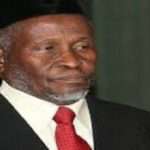Profile
Advanced Assessments is a firm of psychologists and Expert Witnesses: We provide psychological assessments and therapy. Our assessments include assessments of fitness to plead, dyslexia, dyspraxia, dyscalculia, autism, ADHD, mental health and learning disability. We also carry out neuropsychological evaluations and tests of brain injury. We make recommendations for extra time in exams, reasonable adjustments at work and special measures in legal cases. Our expert psychologists undertake assessments of disability, and occupational health in employment, criminal, civil, housing, family and immigration cases. Psychological evaluations are quality assured to rule out malingering and symptom exaggeration. Our psychologists provide a rapid response to enquiries and have the facility to take instructions seven days a week. In suitable cases, we can produce reports within seven days from instruction. Our Expert Witness Psychologists work with individuals of all ages and provide some services online.
What is Parental Alienation Syndrome?
Parental alienation is often raised as a reason for children not wanting to see the parent who they do not live with in child contact and residence disputes. The psychological process of parental alienation is said to develop by the parent with care, and therefore with power, directly or indirectly causing the child to show unjustifiable anxiety, disrespect or hostility towards the non-resident parent. The result of the processes that the child ultimately rejects the non-resident parent, and typically asserts that they are doing this of their own volition. The process is problematic because, in child contact and residence disputes in the United Kingdom, the family courts place the wishes and feelings of the child at the centre of their decision-making. Therefore, when a child says that it does not want to see the non-resident parent, this assertion is likely to be given considerable weight by the courts. Unless it can be demonstrated that the child is a victim of parental alienation.
The UK courts often prefer to use the term implacable hostility to describe the symptoms that manifest themselves when a child has been subject to parental alienation.
It is important to note that the process of parental alienation is hugely damaging to the psychological well-being of the child that has been alienated. A good childcare lawyer will, therefore, direct the expert to consider whether the child has suffered significant emotional harm. If a child has suffered significant emotional (psychological) harm as a result of parental alienation, this can be a strong argument to reverse the current residence or child contact arrangements in favour of the parent that does not have residence or has limited contact with the alienating child. Put another way, many expert psychologists and child care mental health professionals believe that parental alienation is child abuse.
Our expert psychologists have worked with children and young people in several settings and provided advice for parents in child contact disputes.
Why has it been so difficult for diagnosis of Parental Alienation to be accepted in UK Courts?
I am particularly familiar with the work by Richard Gardner on Parental Alienation Syndrome, a concept that has been recognised by some in the USA but has not generally found acceptance by the family courts in the UK. The concept is controversial. Parental Alienation Syndrome has not received general acceptance by the courts for two key reasons:
(1) an alienation syndrome is not a professionally recognised diagnosis;
(2) the absence of a reliable clinical-forensic assessment of the alienation syndrome.
Consequently, parental alienation did not exist as a discrete category in the Diagnostic and Statistical Manual of Mental Disorders in the American Psychological Association DSM-IV (which is now obsolete). However, this does not mean that such a process does not exist. Our expert psychologists have observed the process in several family settings.
This explains why the assessment of parental alienation does not form part of the formal training of psychologists or psychiatrists. Formal training in the area is, therefore, by self-directed learning and practical experience of dealing with such cases.
How is Parental Alienation Syndrome Diagnosed?
Dr. Craig Childress, one of the leaders in this field, teaches that parental alienation is a two-person diagnosis. Childress believed it is necessitated by the child’s primary diagnosis of a shared psychotic disorder (DSM-IV TR Code 297.3) when the child effectively shares the delusional belief system of the alienating parent.
Central to this model is the view that the alienating parent has a personality disorder with borderline, narcissistic and antisocial features. Emerging from the personality disorder of the alienating parent is an “encapsulated” delusional disorder (a fixed belief system that is impervious to facts, reason or evidence) involving the inadequacy of the targeted parent (often the parent without care). The fixed belief system represents an intransigent psychological re-enactment dynamic of early childhood relationship trauma consistent with the development of personality disorder.
In when the DSM-5 was developed, Dr Childress refined his model it fits with the following DSM-5 diagnosis:
- 4 Adjustment disorder with mixed disturbance and emotions and conduct
- 20 Parent-Child Relational Problem
- 29 Child Affected by Parental Relationship Distress
- 51 Child Psychological Abuse, Confirmed (pathogenic parenting)
Richard Gardener believed that parental alienation syndrome appears mainly in child custody dispute where the child turns massively against the parent without care without reasonable grounds for doing so. This action of the child is a result of the parent with care’s emotionally abusive attempts to incite the child against the non-custodial parent. Gardener believed that where a child’s rejection of the parent is based on some real experience, a diagnosis of parental alienation should not be made.
Find out more about Parental Alienation
Parental alienation – Cafcass – Children and Family Court Advisory
Parental Alienation – Families Need Fathers
Parental Alienation Syndrome: What Is It, and Who Does It
Analysis: Parental Alienation and the new Cafcass Assessment
Warning Signs of Parental Alienation and What To Do About Them
Parental Alienation Definition
I was the Victim of Parental Alienation, and this is what it’s like
Parental Alienation: Courts ensure Children won’t be caught in the Middle















